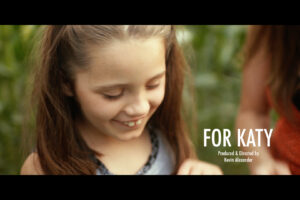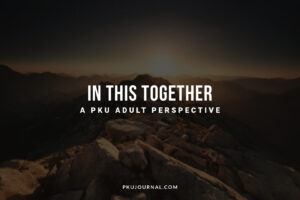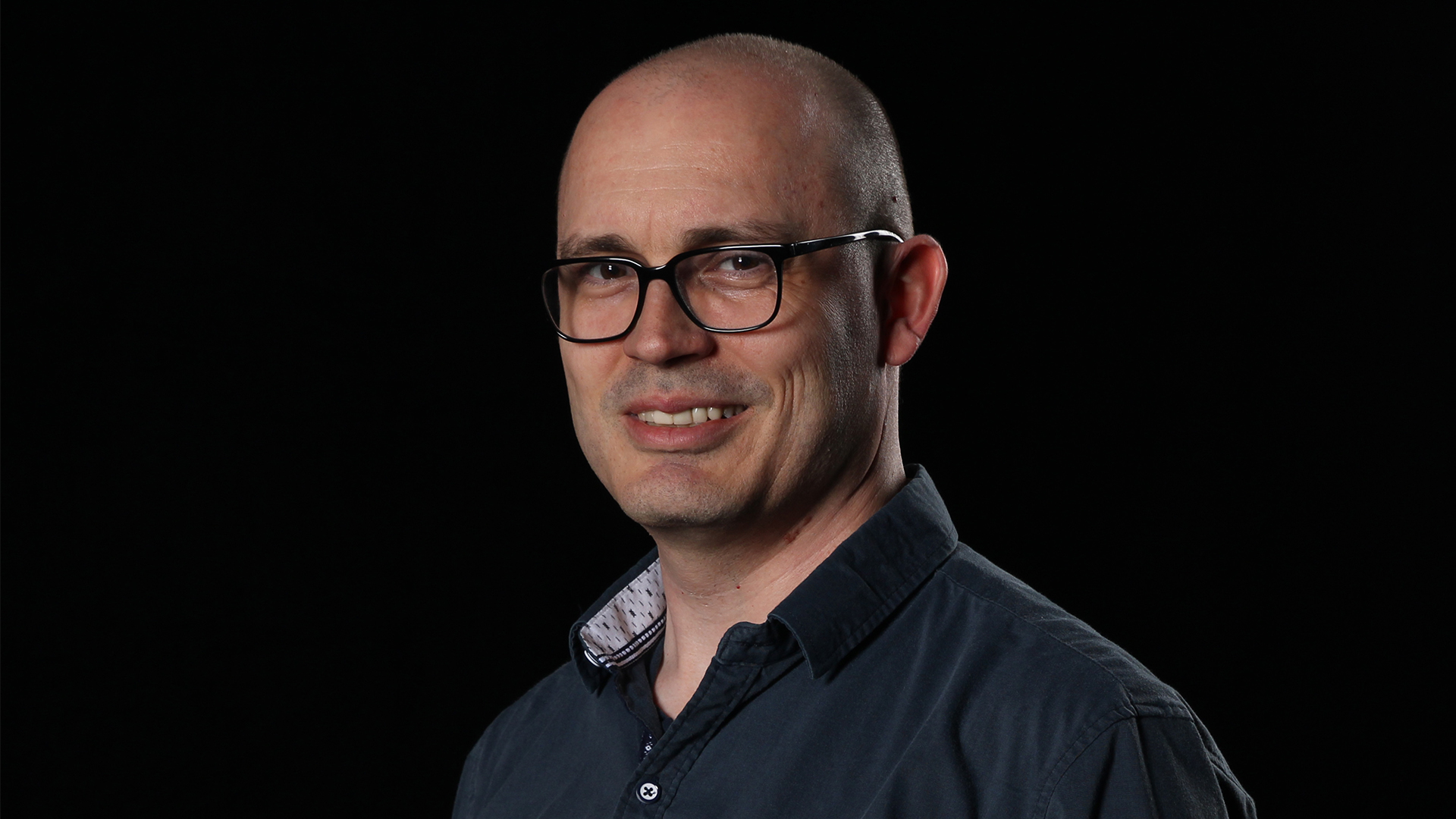Advocacy is social justice. But sometimes justice fails. So, we fight. This article explores themes from “Why We Fight: A Manifesto for PKU Awareness.” Though written for the PKU community, these are timeless principles for anyone engaged in advocacy of any kind.
Advocacy is Social Justice: We Fight for What is Right
“Why do we fight?”
“Why do I fight?”
These are questions I ask myself. Over, and over, and over.
Previously, I shared an article called “Why We Fight: A Manifesto for PKU Awareness”. It was not something I planned to write, but I opened my journal one morning, and it just flowed.
It’s my view of the world, refined over the course of my journey.
It’s the way I see advocacy.
Advocacy is about fighting for what is right. What is good. What is honorable.
I cleared my schedule for a few months because I was going through a difficult time, and in the process I returned to a routine that helps me find balance.
I read voraciously.
I think.
And I journal.
And during that time, I thought about advocacy and why it’s so central to my life. I thought about why any of us get involved and try to make a difference.
And I found my answer.
Advocacy is social justice. But sometimes justice fails. So, we fight.
Why I Fight
Before I make my case for advocacy as social justice, I want to take a moment and acknowledge something. I have to be honest about my perspective—my view of the world.
I am a person of faith. I don’t wear my spirituality on my sleeve. I wear it in my heart. It is imprinted on my mind. I try to let it influence every thought, word, and deed.
This view lies deep in my conscience. It is how I see and experience the world.
We all have foundational beliefs like that. The academic term for it is “worldview”. And I will get a little academic here and there throughout this article. Because this worldview isn’t something I have accepted casually. It was developed over many years of study.
My perspective? I am a Christian, although not a very good one. I believe that love is a verb, and that actions are more important than words. I am not trying to convince anyone of anything. I am simply trying my best to love people and serve my community. And part of my journey included theological education.
I have a Master of Arts degree in Theological Studies which included training in theology, philosophy, history (using primary and secondary sources), textual analysis, and psychology. This training influences how I approach my private thought life, journaling, storytelling, and advocacy.
I don’t talk about this much. I have followers from all over the world, from every background and belief. Or no belief. I respect that. I believe every person is owed dignity—not for anything they do, but because of their existence.
I don’t force my beliefs on others. This is just the lens I bring to my work. It’s the filter for how I see the world. It influences every part of me, including why I fight as a PKU advocate. And I felt like I needed to be transparent about this before I make my argument below.
But I believe deeply that people of all faiths, or no faith at all, can be powerful advocates. Because what unites us in this community is shared experience and a simple belief that humans matter.
Everyone matters.
Every voice matters.
Every story matters.
Every person matters.
People are owed respect and honor simply because they are human.
Let me be clear—this is not a religious article, but it is a philosophical one. And at times, a spiritual one—in the sense that it is not materialistic. We’re going to explore topics like morality, ethics, empathy, social justice, and oppression. I love exploring philosophy, and spirituality is ingrained in me.
I’m sharing, not imposing. This is who I am. I am just asking you to think about your perspective—take what’s useful to you, ignore what isn’t, and keep going.
We’re going to dig deep in this article. We’re going to consider assumptions about advocacy. We’re going to deconstruct terms to dissect and examine them in a new light. And then we’re going to rebuild terms to discover meaning.
I might say some things you disagree with. Passionately. I’m going to be blunt about oppression, and the signs I see in society today that concern me greatly.
But ultimately, I hope we can agree on this—we fight because humanity is worth fighting for.
The Foundation of Advocacy
Before we examine social justice, let’s ask a foundational question…
“What is advocacy?”
You can use a term so much that it loses its meaning. That’s the nature of language. And it’s the nature of any movement.
PKU advocacy is a movement. It’s something many of us serve with our lives. We are fully devoted. People have spent decades of their lives serving our community. Some do it as volunteers, others as professionals. Some act as individuals, some serve non-profit organizations, and others work for companies developing medications and treatment. But we are all serving the same movement, no matter where we live in the world.
And any movement, at its beginning, uses language that sets hearts and minds on fire. Over time, the ideas that built the movement lose their meaning from repeated exposure.
I have used the terms “advocacy” and “advocate” countless times. When I created my Facebook page in 2012 I called it “PKU Advocate Kevin Alexander” because I didn’t really know what else to call myself. “Advocate” seemed like a good choice. I didn’t understand at the time how much it would become part of my identity.
And one way I keep these ideas fresh and alive is through diligent study.
I try to apply principles from history, philosophy, and even spirituality in my advocacy. I read thoughtfully. I deconstruct sentences. I examine them. I meditate on them. And I define words so that I can look at these ideas in a new light. And, a quick aside here, I use the Oxford English Dictionary throughout this article. It’s my preferred dictionary.
We are Driven to Serve
We often use the term “advocate” in the context of legislative advocacy. In this sense, an advocate is “a person who publicly supports or recommends a particular cause or policy.”
I encounter this idea frequently in rare disease advocacy. Much emphasis is placed on lobbying governments to enact policy changes on behalf of the rare disease community. It is based on objective truth about the rare disease life—the undeniable facts of our existence. This type of advocacy is informational.
That is necessary. That is just. That is honorable.
But that is not the only meaning of advocacy.
Don’t get me wrong—I’m not denying the importance of legislative advocacy. It absolutely saves lives. The rare disease community is filled with countless examples of passionate advocates who lobbied their governments to enact policy changes, and in doing so, they saved lives. Period.
But many people I speak with are intimidated by legislative advocacy. Still, I try to encourage them to consider it, and I remind them that their voice is powerful. But I also acknowledge that there are other paths to effective advocacy.
I also say frequently that anyone is an advocate. Our stories matter, and when we share them we can have an impact far greater than we can ever imagine. I firmly believe that. I’ve seen it in my advocacy journey. I’m grateful that people listen to what I have to say and feel like my work has helped them. This is where words fail me, because I have no language to describe how much that means to me. I never take it for granted. Never.
I’m just trying to do what I think is right and encourage others to do the same. Because every story matters. And when we come together as a community, and share our stories collectively, our voice is more powerful than we realize. Stories can change hearts and minds.
This type of advocacy is experiential. It is based on subjective truth—not just facts, and not mere opinions, but undeniable stories rooted in life experience.
But, to me, there is another form of advocacy. I think it’s what we all aspire to, whether we recognize it or not.
This kind of advocate is “a person who pleads on someone else’s behalf.”
An advocate is a person who speaks on behalf of another.
It is someone who doesn’t simply act for their own good. But they recognize the needs of others and work for the common good.
This form of advocacy is sacrificial.
We are driven to serve.
We are Driven by Values
But what drives us? I think it’s three things—morality, ethics, and empathy.
Now, I’m going to reiterate that this discussion is not about religion.
I’m speaking philosophically here about a classic view of morality and ethics. I’m not going to point to one school of thought because this is a distillation of everything I’ve learned. But, for what it’s worth, I’m influenced by Stoic philosophers such as Marcus Aurelius, Seneca, and Epictetus for their emphasis on wisdom and virtue as the path toward a good life.
Morality
Morality is “principles concerning the distinction between right and wrong or good and bad behavior.” While this may differ according to belief system or culture, the idea of morality is universal.
We all do something wrong from time to time.
We all feel wronged from time to time.
And morality is that place in our conscience that says, “This is wrong.”
But it’s also the place deep in our hearts where we encounter something true, something beautiful, or something excellent and say, “This is right. This is good. This is honorable.”
That’s recognizing right from wrong and trying to live in a way that aligns with what you believe about life.
That’s conscience.
That’s morality.
That’s asking the question, “How do I live with myself?”
Ethics
What about ethics?
This is where the dictionary isn’t exactly helpful. At least, not to me. Because ethics is defined as “moral principles that govern a person’s behavior or the conducting of an activity.” We covered that already. That’s morality, in a classic sense. Ethics is also defined as “the branch of knowledge that deals with moral principles.” This is closer, but it doesn’t help explain the difference between morality and ethics.
I set aside the dictionary at this point and turned to my academic library. I built up a personal library during my graduate studies. It’s a collection of specialized dictionaries and other reference works, and I still rely on it when I want to dig deep into a particular topic. So, I spent a few weeks studying, trying to understand the difference between morality and ethics, because that’s always been a bit unclear to me. On the surface, they seem similar. But here’s my current understanding…
If morality is developing your conscience, then ethics is putting your conscience into practice.
Morality is the code you live by. Ethics is living it out in your relationships—with your family, friends, and society.
In other words, ethics is the study of taking one’s system of morals and practicing it in society.
That’s asking the question, “How do I live with others?”
Empathy
And what about empathy? How does it relate to morality and ethics?
Empathy is “the ability to understand and share the feelings of others.” And it is impossible to be empathetic if you’re close-minded and cold-hearted.
Empathy is opening your mind to perspectives you haven’t considered and understanding them. You might disagree. Passionately. But you acknowledge the right of the other person to have their views.
And it is opening your heart to care for others. To respect their humanity. To respect their lives.
You respect their dignity of mind and heart and their right to exist.
That is understanding.
True understanding is not mental assent. It is implanting something on your heart and mind. It is taking truth, whether objective or subjective, and making it your own.
And even when you disagree with someone, you respect the truth of their humanity—of their existence.
Morality. Ethics. Empathy.
These are central to advocacy as a form of service. We are motivated by love.
We are driven by values.
We are Driven for a Mission
But we don’t stop there.
We aren’t just driven to serve. We aren’t just driven by our values.
We live with a sense of mission.
If you consider yourself an advocate, then you are someone with a mission.
Maybe it’s to make life better for yourself. Maybe it’s to make life better for someone you love. Maybe your rare disease experience isn’t a burden for you, so you give of your time and energy to help those you don’t even know.
It’s all service.
We are driven for a mission.
As I shared in a previous article, “The Newborn Screening System: More Than Just a Test”, I live by this ancient wisdom: “Seek justice, correct oppression.”
That’s my advocacy battle cry.
I’m going to dig into justice and oppression in a minute. But so far, I’ve been laying a foundation.
What is advocacy?
Advocacy is informational.
Advocacy is experiential.
Advocacy is sacrificial.
We are driven to serve.
We are driven by values.
We are driven for a mission.
What is Social Justice?
Now that we have a foundation for what advocacy is, let’s ask a different question—”What is social justice?”
Well, let’s break that apart into its separate themes—society and justice.
Thinking about Society
Society is “people living together in a more or less ordered community.”
Life together. Community. A gathering of people.
If you know me at all, you know I love community.
I’ve lived in isolation. And I’ve lived in community. And I much prefer life in community.
Relating to others is a gift. Friendship is a gift. Family is a gift.
If we cut ourselves off from the rest of humanity we are only harming ourselves. Because humans exist in relation to others.
It’s why we create families.
It’s why we form alliances.
It’s why we gather together as communities.
Because life together is better than life in isolation.
Thinking about Justice
And what about justice?
Justice is about pursuing what is right.
Justice is good and right and distinct—you know it when you see it.
Pursuing justice is about being a person of integrity. Being true. Being trustworthy.
It’s about pursuing equality and equity.
Remember that I said that my advocacy battlecry is “Seek justice, correct oppression?”
Well… Let’s make this simple.
Justice is seeking what is right to correct what is wrong. And oppression is just another word for what is wrong.
Now, let’s link this back to our earlier reflections on morality and ethics. Morality is a code of conduct that defines your inner life. Ethics is a set of behaviors that gives meaning to your outward actions.
Having standards. Taking action. When we combine those two ideas we discover a third—social justice.
Social justice is having standards and taking action to restore order.
What is Oppression?
What is oppression?
It’s defined as “prolonged cruel or unjust treatment or control.”
Oppression is cruelty.
I’ll be direct.
I’ve seen a lot of cruelty. That was life when I was a TV photojournalist. I like to say that journalism is a front row seat to history. That’s true. But it’s also a front row seat to human cruelty.
You see a lot that you can never wipe from your memory, never get out of your mind’s eye. When night falls, and the house grows silent, and you’re trying to wind down from a long day at work…
That’s when it all returns to your mind. So you do anything you can to stay busy, and by all means, you don’t go to sleep.
The things that some humans can do to other humans… I’m not shocked anymore. By anything. More than I’ve shared publicly in stories like Regaining Hope: My Journey to Rare Disease Advocacy.
I’m not shocked by cruelty anymore. But I’ll also never understand.
So, when I see words like “oppression” and “cruelty”, it’s not abstract for me. I feel it in my chest.
But cruelty isn’t the only form of oppression.
So is apathy—a hallmark of unjust treatment. And apathy is the opposite of empathy.
Empathy sees suffering, and says, “I must care. I must do something.”
Apathy sees suffering, and says, “Who cares?” And doesn’t even consider doing anything.
In American society, justice is mocked. Cruelty is celebrated. People scoff at treating others with compassion.
We are becoming a nation not of empathy, but of apathy.
An Example of Oppression in American Society
People say they believe something, yet with their actions they deny their beliefs.
They say they believe in compassion.
They say they believe in love.
They say they believe in kindness.
And yet their actions reveal apathy, hatred, and cruelty.
Let’s take this out of the realm of abstract thought and make it concrete.
Let’s talk about newborn screening.
Newborn screening isn’t just a test. It’s a system of interrelated and interconnected moving parts. And US federal policy is weakening that system.
The Advisory Committee on Heritable Disorders in Newborns and Children (ACHDNC) was terminated on April 3, 2025. It was a committee of volunteers—people dedicated to improving the newborn screening system in the United States. You can read more about that in my article “Newborn Screening Is A Human Right”.
This committee made recommendations to the Secretary of the Department of Health and Human Services about newborn screening policy. By terminating the ACHDNC, the US government has made a clear declaration—”We are not listening to experts about newborn screening.”
The Newborn Screening Standard
What do the experts say?
The standard for newborn screening can be described as “timely, accurate, and comprehensive.”
That is what newborn screening advocates fight for.
We fight to make sure that newborn screening occurs and a diagnosis confirmed in a timely manner, so that a child doesn’t suffer consequences or die because of a delayed diagnosis.
In June of 2022, a mother reached out to tell me about her daughter who was born with Maple Syrup Urine Disease (MSUD), received newborn screening, but the results were not processed in a timely manner. Her daughter was diagnosed at 10 days, but it was too late. MSUD can be fatal, and so, her daughter died.
She asked me to remember children like her daughter for whom the newborn screening system failed.
I will never forget.
We also fight to make sure the results are accurate so that no one slips through cracks in the system.
One example of this is CDC’s Newborn Screening Quality Assurance Program (NSQAP), which provides support for 670 newborn screening laboratories around the world, including all newborn screening laboratories in the United States.
After the ACHDNC was terminated, those who supported the decision stated that nothing will change because newborn screening is performed at the state level. But that’s a misunderstanding of the system as it exists.
Newborn screening is a public health program. It must be to ensure that all babies born in the United States receive a fair chance at life, and that newborn screening is not simply the benefit of those who can afford it.
This is an interconnected system, and state laboratories depend on support from the federal government. CDC’s program ensures that results are accurate, and that babies born in California or Kentucky, New York or Arkansas have an equal and equitable chance at life.
And we fight so that screening is comprehensive, and that more rare diseases are added to newborn screening programs. The ACHDNC did this by producing the Recommended Uniform Screening Panel (RUSP). There is now no path for adding new rare diseases to federal newborn screening guidelines. Which means that instead of working to prevent the death of children in the future we are making their fatalities a certainty.
Timely. Accurate. Comprehensive. That is the standard.
Or at least, it has been.
Expertise is Good
Newborn screening experts say that a robust system is necessary to ensure that no child falls through cracks in the system.
And now… Experts are ignored.
Expertise is good. Expertise is gained by those who devote their lives to a given field. Yet society now looks at expertise with suspicion.
Because people don’t want to be told what they should do. Even if it would save their lives. Even when it would save their children’s lives.
I don’t normally engage in political discussions, and it doesn’t matter to me what political term you use to define yourself. But we have a big problem in American society.
And that’s our hatred of one another. We have stopped listening to each other. We wear our political affiliation not as a source of healthy pride in our beliefs but as a tribalist banner of who we hate. And we hate each other so much that we won’t grant the other person the right to be right about anything.
And the consequence is now clear—by slowly dismantling the newborn screening system, children will die.
There is justice, and there is oppression.
There is right, and there is wrong.
What is the right thing to do? Protect babies who are born with rare diseases—babies who will suffer or die from inaction.
It is good to defend the rights of those in need.
It is oppressive to weaken the newborn screening system, by any definition of the word. This is a system that protects and saves lives. There is simply no valid argument that its destruction is moral, ethical, or empathetic.
I will always stand for the dignity of every baby born in the world. No matter the cost.
Because newborn screening is a human right.
The standard has been timely, accurate, and comprehensive newborn screening. To dismantle the system that strengthens that standard is not a policy failure. It is a moral failure.
To say, “We are not going to worry about improving the newborn screening system” is to say “We are comfortable if babies die.”
That is not just indifference.
That is apathy. That is cruelty. That is oppression.
When Justice Fails, We Fight
Advocacy is social justice. But sometimes justice fails. So, we fight.
Where there is cruelty, there is narcissism.
Where there is injustice, there is greed.
Where there is oppression, there is ego.
So, we fight.
Our fight is not for policy.
Our fight is for decency.
When we fight, we tell society,
”Protect the weak.
See the outcast.
Serve the brokenhearted.
Be better.”
We say to the weak, “I see you. You are not alone. And I will not abandon you.”
We say to the strong, “Help someone in need.”
We say to each other, “Leave no one behind.”
We make a stand for what is right.
Because it is time to correct what is wrong.
We fight with passion, for we know the stakes of inaction.
We fight with dignity, for we respect human life.
We fight with determination, for we do not fight alone.
We fight for ourselves.
We fight for others.
We fight for future generations.
We fight because we must.
And we will never, never, never give up.











2 Comments
Leave your reply.